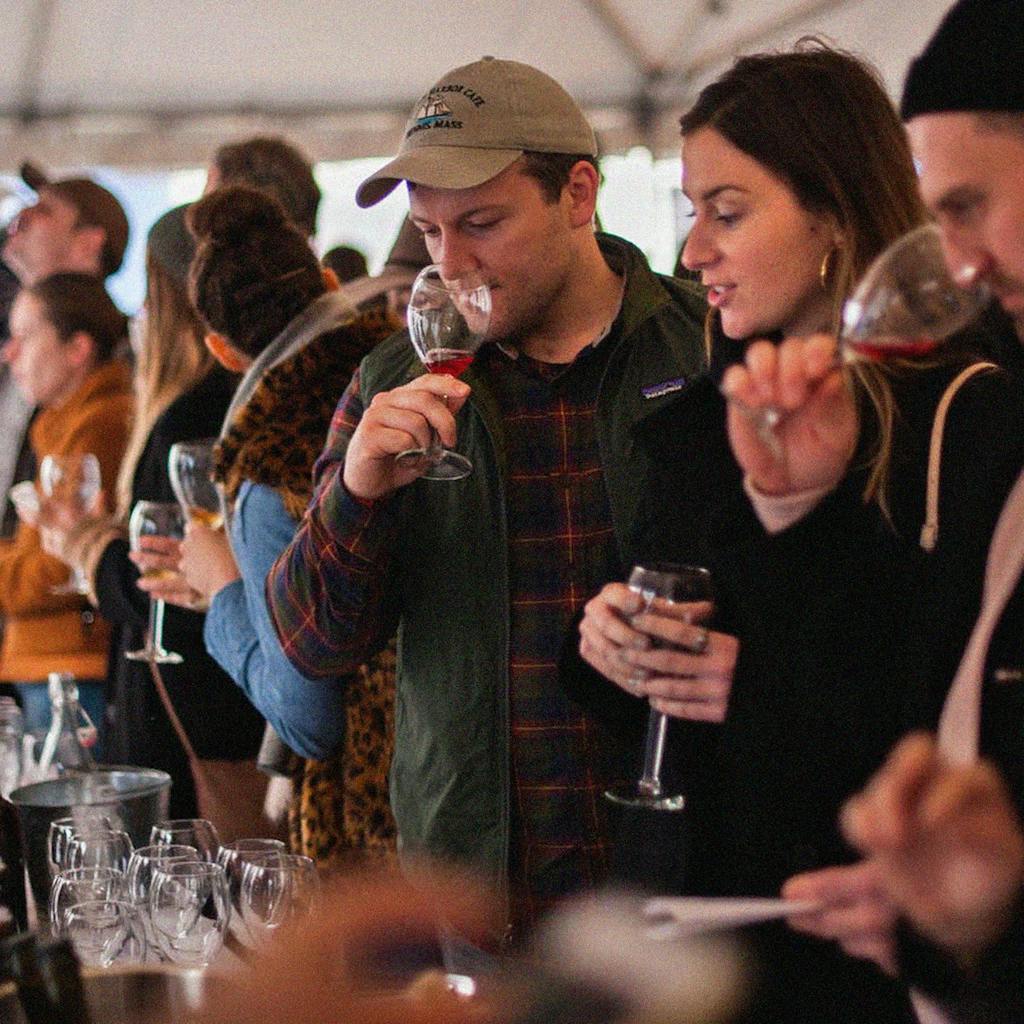[ad_1]
At most food festivals, the drinks feel like an afterthought. They’re usually more about quantity than quality, with few options beyond heavily distributed, mass-produced beer and wine to go with a plentiful array of food. But at Wild World Festival in Austin, small makers get to show off their products, which range from natural wine to fizzy kombucha.
The first Wild World Festival was hosted at Jester King Brewery in May 2019 by New York–based sommelier and Texas native Byron Bates. He wanted to celebrate and share wine—specifically wine made with minimal winemaker intervention and without the use of any additives or chemicals. This type of winemaking is much more laborious and risky than its conventional counterpart, and the producers committed to it are typically individuals or mom-and-pop operations. Bates represents a number of them through his import company, Goatboy Selections, and he often visited Jester King when traveling to Austin to sell wine.
“We’d bring winemakers out to taste and visit, and we were always blown away by how similar [Jester King’s] farmhouse ales were to some natural wines, particularly pét-nats,” Bates says. “So we thought it made sense to taste all of these beverages together under the roof of one festival, and Jester King has so much incredibly beautiful land, it just made so much sense [to have it there].”

After the inaugural Wild World was a success, Bates brought the event to Brooklyn later that year and and again this past fall. He expanded the scope beyond wine and beer, inviting a variety of businesses that utilize spontaneous fermentation, the chemical process that occurs when airborne yeast and bacteria—or the microflora present in the raw materials—inoculate the ferment. The tasting room at the event featured everything from kombucha and mead to shoyu and makgeolli (Korean rice wine).
“It’s become a science fair of sorts; that was a natural progression,” Bates says. “We’ve been inspired by the science and the incredible work of these producers, so we wanted to take it a step further . . . so people think about fermentation and leave with an appreciation for it.”
This weekend (May 14–15), Wild World is happening again at Jester King Brewery, bringing over fifty makers of wine, beer, cider, and kombucha. Other highlights include coffee from Figure 8 Coffee Purveyors, oysters from Austin Oyster Co., cheese from OroBianco Italian Creamery, and a special menu from French-Basque chef Iñaki Aizpitarte of Le Chateaubriand in Paris in collaboration with Ben Runkle of Salt & Time and James Brown of Barton Springs Mill.
Wild World has limited tickets (which start at $65) and offers timed entry to ensure an enjoyable experience. Attendees are encouraged to chat with producers in a salon-style tasting pavilion and sit in on panels that dive into brewing, winemaking, fermentation, and the politics behind production.
“As natural wine becomes more popular, fashionable, or even polarizing, it’s made us more determined to be science-focused and dispel myths and anecdotal science,” Bates says. This year’s panel programming features French engineer turned winemaker Éric Texier, cold-climate winemaker Erin Rasmussen, Emmer & Rye larder manager Alfred Francese, and Raphael Lyon, creator of New York City’s first meadery.
Participating Texas producers include Way Out Kombucha (San Antonio) and Roughhouse Brewing (San Marcos), Alta Marfa, the Austin Winery, Soto Vino (San Antonio/Austin), Southold Farm and Cellar (Fredericksburg), Decant Urban Winery (Houston), William Chris Vineyards (Hye), and Summer Revival Wine Co. (Dripping Springs).
“Wild World is our favorite event of the year,” says Ross McLauchlan, cofounder of the Austin Winery. “Most everybody is genuinely interested in wine, hearing about the unique challenges we all face, and celebrating what’s in the glass . . . I hope that it pulls back the cover of buzzwords and speaks to the nuance and individuality of each winemaker. There is a whole world of wine within ‘natural wine,’ just like any other segment, and I hope it increases the general wine IQ of consumers and helps them identify what styles and grapes they really love.”
[ad_2]
Source link

